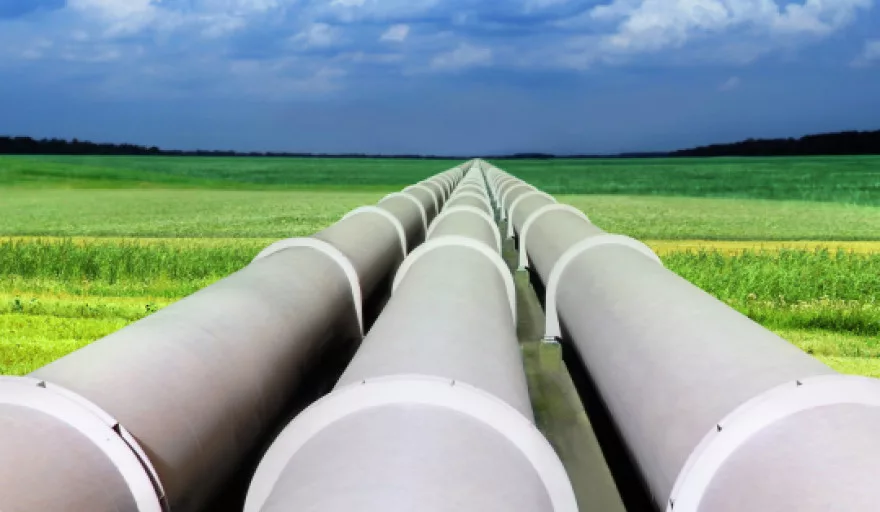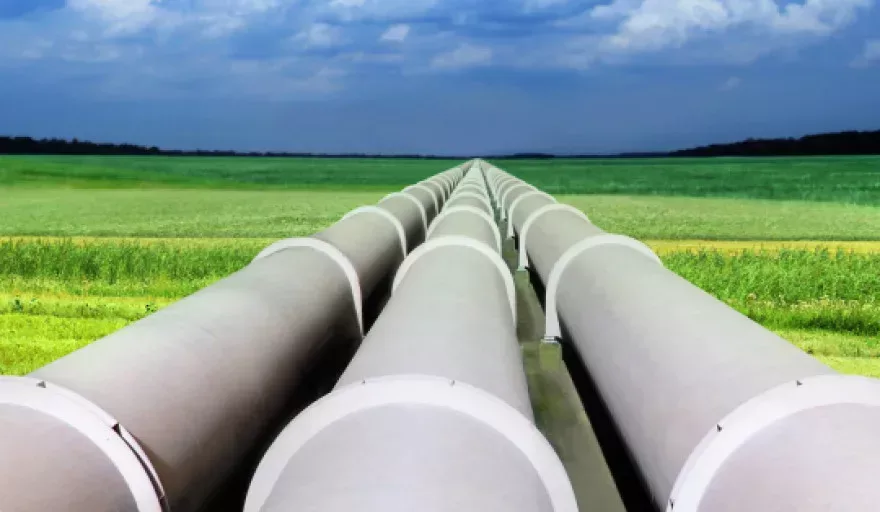
In a major initiative to strengthen the West African economy, the Kingdom of Morocco and Federal Republic of Nigeria have announced that they will jointly develop a new regional gas pipeline connecting the two countries, bringing the resources of Nigeria to Morocco, its neighbours and Europe.
The Trans-African Pipeline project was announced during a Royal visit to Nigeria by His Majesty, King Mohammed VI, of Morocco, with President Muhammadu Buhari of Nigeria, and is designed to stimulate large-scale economic growth across the region.
By accelerating the electrification of the region, the Trans-African Pipeline will improve access to energy across West Africa. This will help address one of the region’s most significant barriers to development; the lack of affordable energy. In addition, the project will strengthen energy exports to Europe, linking Nigerian gas to the European energy market through Morocco.
In West Africa, the Trans-African Pipeline is designed to support the creation of industrial hubs that attract foreign investment. The project will therefore facilitate the expansion of sectors ranging from industry to food processing to fertilisers and improve the competitiveness of exports, particularly amongst African countries. Currently, intra-continent trade accounts for only 17 percent of African countries’ international trade, much lower than in Asia or Europe, in part because trade costs between African countries are often comparatively higher.
Designed with the participation of all concerned parties with the aim of speeding up electrification projects in the region, the project will also establish a competitive regional market for electricity, likely to be linked to the European market of energy. It will also spur local transformation of natural resources available for national and international markets.
Work with all countries
The project will be considered through new collaboration between Ithmar Capital, the Moroccan sovereign wealth fund, and the Nigeria Sovereign Investment Authority (NSIA). The two funds announced the signing of a Strategic Partnership Agreement (SPA) and a Memorandum of Understanding (MOU), which will see their countries cooperate on bilateral investment for the first time in recent history.
“The pipeline will run an estimated 4,000 kilometres along the west coast of Africa,” Ithmar Capital noted. “The countries through which it runs and the exact route will be determined as the project moves forward, based on further research.
“Morocco and Nigeria are eager to work with all countries in West Africa to ensure their economies and people benefit from the project.”
Under the SPA, Ithmar Capital and NSIA have committed to jointly pursue investment in strategic sectors including food security, renewable energy and infrastructure. The SPA also commits the two institutions to share knowledge and expertise relating to the extractives sector, to collaborate on research and best practices, and to provide policy guidance in order to strengthen both countries’ capacity to manage natural resources.
Similarly, the MOU provides for a broader alliance framework between the two entities: It ensures Nigeria’s active involvement in the Green Growth Investment Fund (GGIF) Africa, an initiative to catalyse Africa’s transition to a green economy. GGIF Africa was launched during the UN Framework Convention on Climate Change Conference on Parties (COP22), held in November in Marrakech. It aims to accelerate regional growth by attracting foreign investors interested in Africa who seek responsible, sustainable opportunities.
A major commitment
Together, the two agreements will create a formal structure to build relationships and create new opportunities between businesses in Morocco and Nigeria. They also represent a major commitment by two of Africa’s largest economies to collaborate on regional initiatives that will continue the continent’s development.
The Nigerian Minister of Foreign Affairs, Dr Geoffrey Onyema, stated: “This South-South open platform will accelerate the structural transformation of the national economies of the region, thereby putting the entire region on a higher growth path.
“The two Heads of State agreed to set up a Bilateral Coordination Body to monitor this important project and commended such a strategic cooperation in Africa.”
The new collaboration between Morocco and Nigeria is intended to set a model for South-South cooperation and act as a catalyst for African economic opportunities. It aligns with His Majesty, King Mohammed VI’s regional strategy, in which he has declared that Africa is the top priority in Morocco’s foreign policy and that the Kingdom will contribute to economic, social services and human development projects that directly improve the lives of people in the region.
This includes on projects related to the energy sector and, notably, sustainable and green projects.
A joint statement from King Mohammed VI of Morocco and President Muhammadu Buhari of Nigeria:
“As a major project meant to boost regional economic integration, the pipeline will be designed with the participation of all concerned parties with the aim of speeding up electrification projects in the whole region, serving as a basis to set up a competitive regional market for electricity, likely to be linked to the European market of energy, to develop integrated industrial hubs in the sub-region in sectors as industry, food-processing and fertilizers; in order to draw foreign capital, improve the competitiveness of exports and spur local transformation of natural resources available for national and international markets.
“Important business opportunities will be generated by this project for manufacturers and investors.
“By promoting economic integration, based on positive complementarities, sustainable synergies and inclusive approaches, this south-south platform will step up structural transformation of the region’s national economies, putting all the region on the path of a stronger growth.”






























